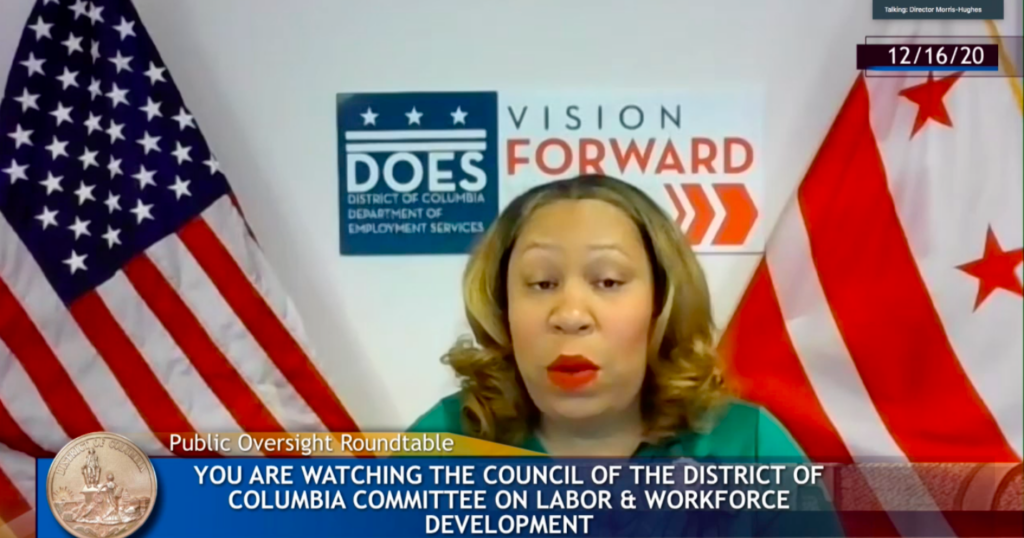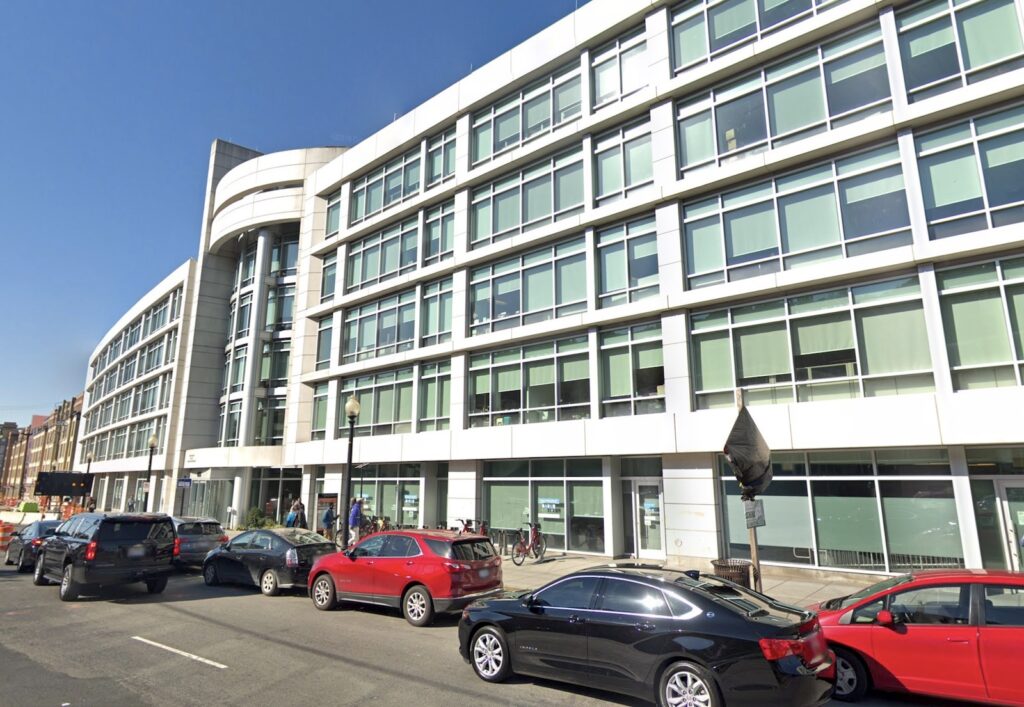Claiming all your unemployment benefits in D.C. can be a time-consuming, arduous process, workers report.
A series of hearings this fall revealed the difficulties jobless workers have had accessing federal benefits, including long wait times to speak to the Department of Employment Services (DOES), and months-long waits for benefits. With Pandemic Unemployment Assistance (PUA) and Pandemic Emergency Unemployment Compensation (PEUC) extended until March, workers’ complaints about these programs have risen to the surface.
“Workers are still facing long hold times and unanswered emails when trying to fix their claims,” said Zachery Hoffman of the D.C. Bar and Restaurant Workers Alliance at a Dec. 9 roundtable. “There’s very little guidance on how to do this properly.”
As the number of people applying for unemployment increases, DOES has come under increasing strain to provide benefits to workers. According to DOES Director Unique Morris-Hughes, the agency currently responds to 48% of claims within two weeks and 63% of claims within three weeks. However, in public hearings held by the D.C. Council Committee on Labor and Workforce Development, applicants have continued to testify they have been waiting for claims adjustments for months.
At-large Councilmember Elissa Silverman has been holding these hearings in an attempt to bridge what she calls “the communication gap” between DOES and workers seeking benefits. “A lot of our workers are having trouble deciphering what to do, and then there’s a lack of information, understandable information, and guidance to help them,” she said.
According to Doni Crawford, a policy analyst at the D.C. Fiscal Policy Institute, 41,000 people in the District are still seeking or receiving some kind of unemployment benefits.
Two main problem areas with these programs have emerged from the public hearings.
The first is that workers are struggling to apply for PEUC, the 13-week unemployment extension program. For workers who have wages in multiple states, applying for the second set of benefits can be complicated. Anyone who applies for PEUC and is flagged as having wages in multiple states must contact the other state, apply for unemployment benefits there and be denied before D.C. can approve them for PEUC.
“If you’re earning in another place, that means your PEUC claim is not a seamless process, it creates a lot more steps,” Silverman said. This process is made more difficult because the burden has been placed on workers, who are less likely to be familiar with the process than unemployment offices. “It’s unclear whose responsibility it is to determine whether you’re eligible in that other state or not,” Silverman added.
While this process is the result of a federal regulation and mandated everywhere, it is particularly burdensome in D.C., where a significant portion of workers have second jobs or earn wages in Maryland or Virginia. The requirement to contact multiple states and put more effort into claiming benefits is disproportionately put on low-income workers, who are more likely to have multiple jobs, Drake Hagner from D.C. Legal Aid testified.
“The underlying rules and laws around designing the PEUC system really disadvantages low- and middle-income workers,” Hagner said.
Hagner suggested the unemployment agencies in the three jurisdictions work together to create a set of standards that would explain which workers might be eligible for unemployment in each jurisdiction, eliminating the need for workers earning below a certain amount of wages to apply for unemployment just to be denied. This could streamline the applications of many hospitality workers who primarily work in D.C. but picked up a few shifts at a location outside the District, and now have to apply there even though they only made a few hundred dollars.
While DOES has not indicated whether a solution like this is on the way, they have begun to provide applicants who need to contact other states with a script to use when doing so to ensure they get the information they need, according to Morris-Hughes.
Meanwhile, those applying for PUA are facing a separate holdup. In order to get money to applicants quickly, when applicants first applied this spring they were sent the minimum payment for PUA, $179 weekly. However, some workers who had income in the last year are eligible to have that rate adjusted, and then receive back pay for any weeks they received the lower rate or were not on PUA despite being eligible.
According to Silverman, several people have informed her they are still waiting for this monetary redetermination. “A lot of our PUA claimants are still struggling to get that back week payment as well as the monetary redetermination,” she said.
When asked for the exact number of claimants waiting for back pay or monetary readjustment in the hearing, Morris-Hughes said she did not have them, and, according to Silverman, has not yet provided them.
“Our goal is to do this as quickly as we possibly can but given the deluge of claims it’s difficult to be at the same benchmark we were at pre-pandemic,” Morris-Hughes said at the most recent hearing.
Monika Stumpo, a bar and restaurant worker who testified at the hearing, expressed frustration at all of the difficulties in the process of getting the benefit workers like her so desperately needed.
“There really should not have been any reason it was a complicated process to prove that you lost your work, it was obvious that you lost your work because everything was shut down,” Stumpo said.
Anyone who is having trouble claiming unemployment can contact Silverman’s office for additional help.







